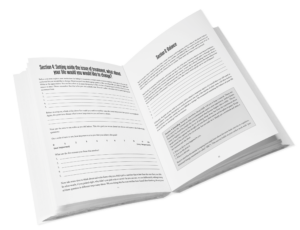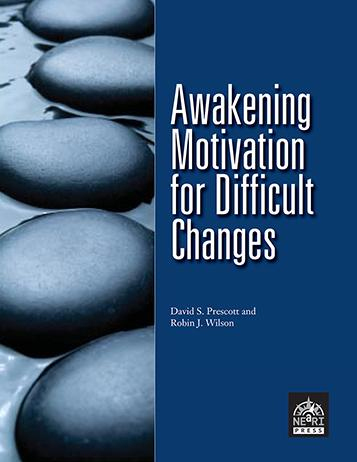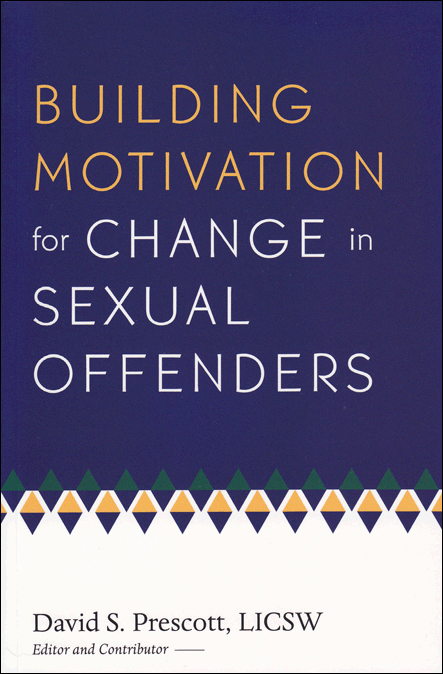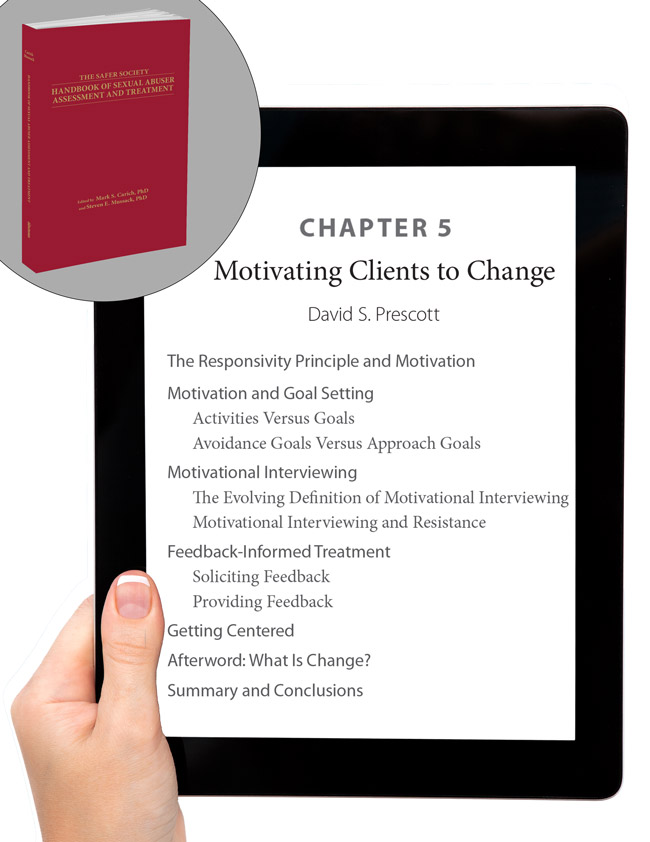Home / Shop / For Adult Clients / Workbooks for Adult Clients
- Description
- Specifications
Awakening Motivation for Difficult Changes
by David S. Prescott and Robin Wilson
Awakening Motivation for Difficult Changes is a workbook designed to provide a structured approach for individuals who are reluctant to engage in treatment—particularly those who have faced legal challenges.
The workbook is grounded in the principles of motivational interviewing, emphasizing that lasting change only occurs when it emerges from within. Rather than confronting or persuading clients, it offers a guided journey of self-discovery through which clients uncover their own compelling reasons for transforming. Each section builds upon the previous one, helping clients explore their ambivalence, identify discrepancies between their current situation and a desired future, and strengthen their commitment to positive change. In addition to fostering internal motivation, the workbook prepares clients for treatment by sharing vital knowledge about the process, such as:
- understanding the therapeutic relationship
- recognizing what effective participation in treatment looks like
Powerful Tools for Self-Exploration
Awakening Motivation employs a variety of evidence-based techniques drawn from motivational interviewing, feedback-informed treatment, and cognitive-behavioral therapy. These practical approaches help readers explore what's meaningful in their lives and examine potential areas for change.
Approach vs. Avoidance Goals
One of the themes found throughout the workbook is its stress on approach vs. avoidance goals. The purpose is to help clients shift from focusing on what they want to avoid to what they want to achieve. Section 7 shows how to turn goals like "I don't want more trouble with the law" into goals like "I want to build a better life." Clear examples and exercises help clients see how this reframing increases motivation and keeps them focused on positive outcomes.
Self-Reflection Exercises
Throughout the workbook, thoughtfully crafted questions prompt readers to examine their thoughts, feelings, and bodily sensations, helping them develop greater self-awareness and curiosity about their lives and behaviors. Such questions are posed from the very first section of the workbook:
“Let's start with a very small series of questions. Think about the past few minutes and ask yourself: What was it like to pick up this workbook and look at it? Was I a little curious about what I would find? Then take a few moments to answer the following questions: Where in your body did you feel even a little bit curious? What thoughts went through your mind – even for an instant – as you opened this workbook and looked at the contents?”
Rating Scales (0-10)
“Importance” and “Confidence” scales allow clients to assess how important specific changes are to them in their lives and how capable they feel about making those changes. These are followed by guided reflections on their ratings.
“Now, let’s look at whether you want to make changes in a treatment program. First, on a scale of zero to ten, how important is it to you that you get into a treatment program?”
Strengths and Resources Identification
Multiple activities focus on uncovering personal strengths and how these can be leveraged for change, including exercises to find the positive intentions behind problematic behaviors.
“Take some time to think about the strengths you already bring to your life. Make a list of at least five of those strengths.”
Think-Act-Evaluate Framework
A structured method designed to support clients in changing their behavior. This approach emphasizes three key elements: planning, action, and reflection. It teaches clients how to practice new skills and incorporate feedback for continuous improvement. The format goes as follows: First, clients are asked to choose a clear goal for change. Then they are guided in this way:
- Think of a way to work on that change and make a plan to accomplish it.
- Act on the plan.
- Evaluate how things went.
Here are examples of specific questions from this section of the workbook:
- What is the self-improvement goal you would most like to work on? Be specific.
- What can you do to make sure you achieve this goal?
- What action will you take? (Describe the action below. Then take the action or a step in that direction and come back to the workbook.)
- Now that you’ve taken or begun this action, how did this action work for you overall?
- What feedback did you get from others that you can use in the future?
 Written by David S. Prescott and Robin J. Wilson, Awakening Motivation for Difficult Changes, builds on decades of combined experience working with people who have encountered significant legal issues. The authors speak directly to the client in an informal, relatable way—perhaps the best way to help them begin the process of self-exploration and planning for a better life.
Written by David S. Prescott and Robin J. Wilson, Awakening Motivation for Difficult Changes, builds on decades of combined experience working with people who have encountered significant legal issues. The authors speak directly to the client in an informal, relatable way—perhaps the best way to help them begin the process of self-exploration and planning for a better life.
“We also believe, from the bottom of our hearts, that building a better life has everything to do with a person’s putting that effort in and very little to do with what we as clinicians can make happen. All that we can provide is the challenging but respectful environment where change is possible.”
This workbook serves as an essential tool in bridging the gap between contemplation and meaningful action for both practitioners and their clients.
To view the Table of Contents, Forward and Introduction, please click here.
ISBN: 978-1-929657-62-9
90 pages, Paperback
$2o.00
Order#: WP190





